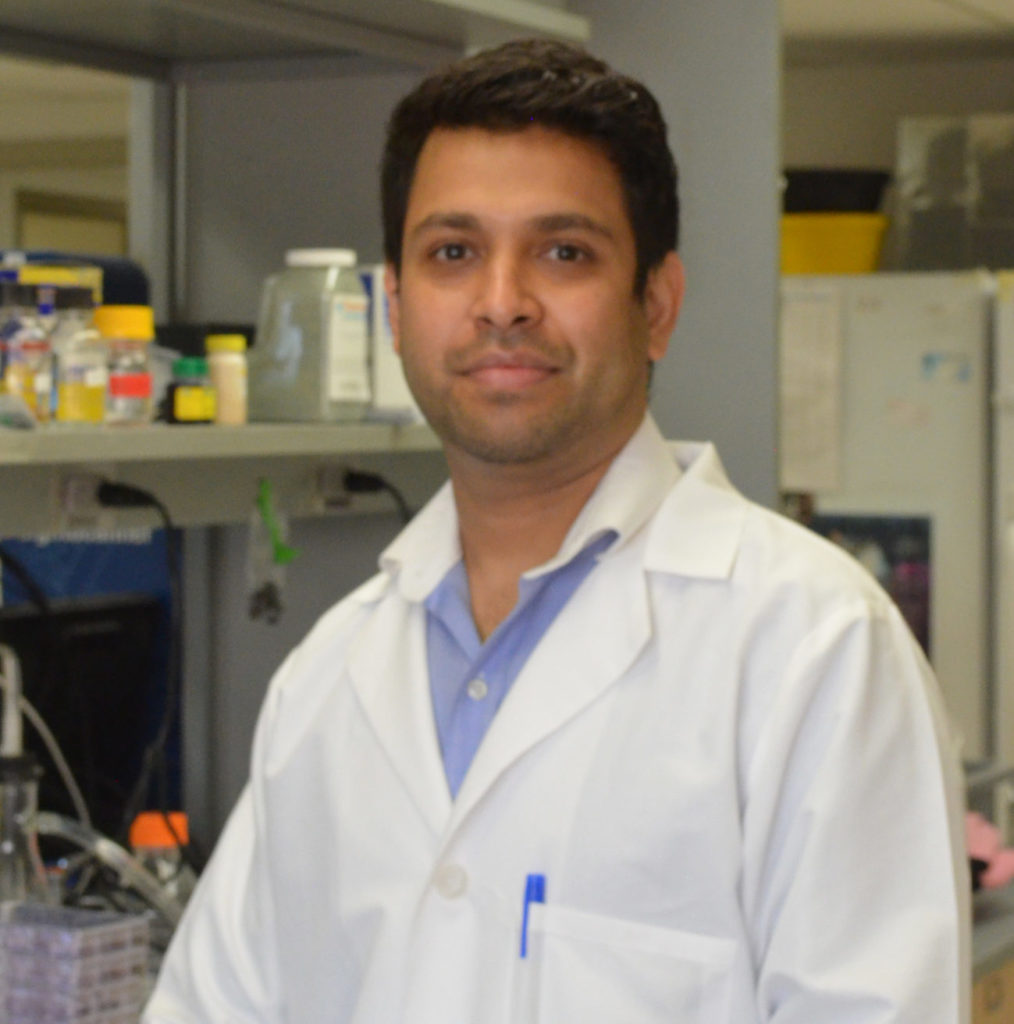
This project was completed by a team at Yale led by Dr. Ranjit Bindra
Dr. Ranjith Menon Muraleedharan – Broad Institute of MIT and Harvard
CureSearch Young Investigator Award: 2020-2022
Focus: Diffuse Intrinsic Pontine Glioma
Project Title: Exploiting metabolic defects with NAMPT inhibitors in DIPG
Project Overview: Diffuse Intrinsic Pontine Glioma (DIPG) is a devastating pediatric cancer that mainly develops in the brainstem, the area of the brain responsible for the control of breathing, involuntary actions (reflex), chewing, swallowing, sensations such as hearing, taste, balance, and communication among the different areas of the brain. The brainstem is essential in the control of life-sustaining functions, so damage resulting from either the tumor itself or its treatment has tremendous repercussions. As a result, and because DIPG cells spread out between normal brain cells, surgical removal of these tumors is not an option. Dismal survival statistics reflect the incredible challenges associated with treating DIPG, the most common brainstem tumor in children. Patients generally live less than one year after being diagnosed, with fewer than 1% surviving after five years.
Dr. Ranjith Menon Muraleedharan is a CureSearch Young Investigator conducting research at the Broad Institute of MIT and Harvard (previously at Yale University). He is performing a comprehensive series of studies to test specific targeted inhibitors in combination with radiation and DNA damaging therapies that are already used in the clinic for glioma treatment. The goal of the project is to develop a new therapeutic regimen for the treatment of DIPG. Dr. Muraleedharan performed a focused Synthetic lethal screen to find targets exploiting vulnerabilities created by common DIPG mutations. “Synthetic lethality” describes a strategy that can be applied where inactivation of two genes due to mutations result in cell death. In many cases, malignant cells only have one of those mutations. By artificially disrupting the second gene in the pair, this approach can induce death in the cancer cell. Dr. Muraleedharan’s screen assessed the ability of different drugs to kill DIPG cells harboring specific mutations.
Dr. Muraleedharan’s mentor, Dr. Ranjit Bindra, Professor of Therapeutic Radiology at YSM, is a current CureSearch Catapult award recipient who used a similar approach to move a new therapy from discovery to clinical trial in under two years.
“I am extremely thankful to CureSearch for supporting my research. Early-career researchers depend on publications and getting competitive grants/ research fellowships—and ultimately an independent investigator position.” Dr. Muraleedharan shares. “The CureSearch Young Investigator award will allow me to develop an entirely new approach to target DIPG based on key mutations in these tumors, which exploits a unique NAD metabolic defect. With the help of synthetic lethal screens, we are interested in finding the Achilles Heels of challenging-to-treat tumors. Here, we believe that there’s an opportunity to take existing treatments like radiation and DNA damaging therapies and bring in NAMPT inhibitors into the fray.”
Dr. Muraleedharan’s research was selected for the SebastianStrong Foundation’s annual Discovery Science Award. The award is granted to research projects that use innovative methodologies and out-of-the-box approaches in the quest for less-toxic cures.
“DIPG represents a significant unmet need in childhood cancer treatments, and we’re proud to support a project that could change the odds for the kids facing this grim diagnosis” said Oscar Ortiz, Executive Director and Co-founder of SebastianStrong.
Read more here.
CureSearch thanks the SebastianStrong Foundation for partnering with us to support this important project.
